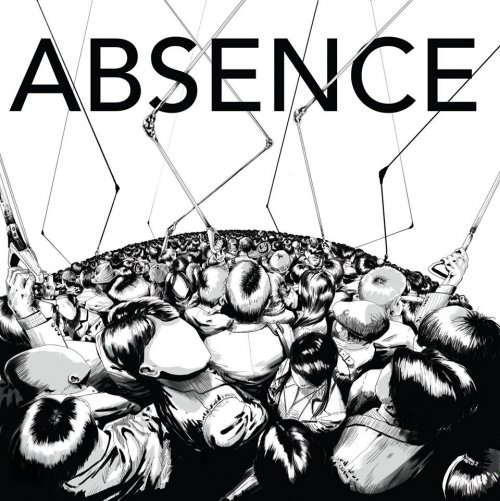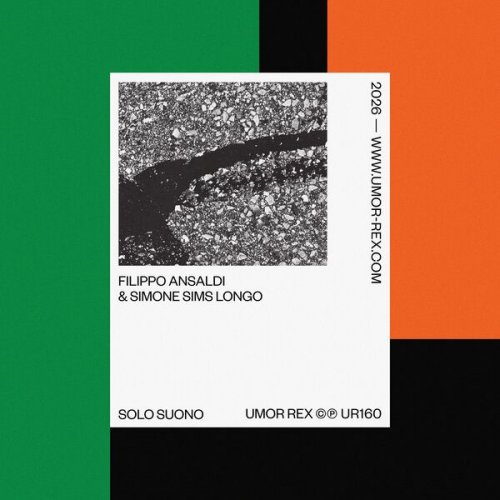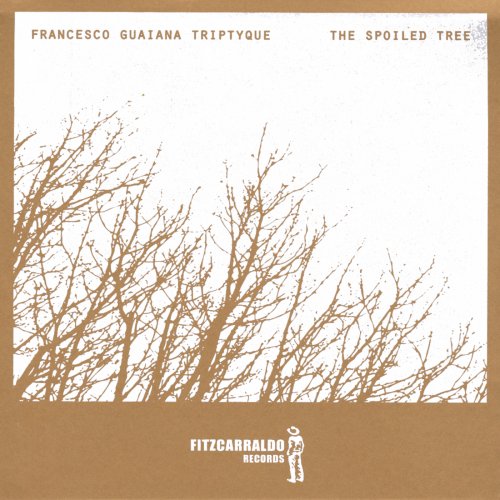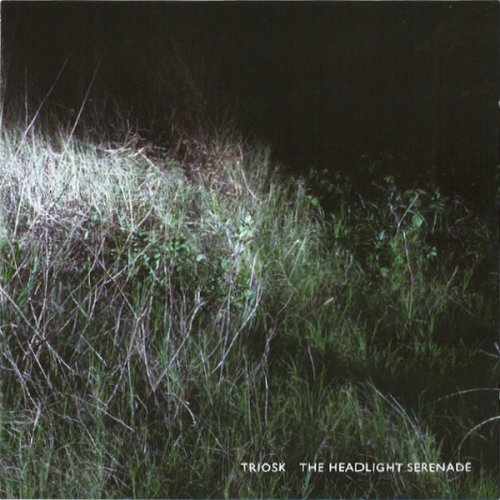Compilation of Iranian Experimental Music - Absence (2016)

Artist: Compilation of Iranian Experimental Music
Title: Absence
Year Of Release: 2016
Label: Flaming Pines
Genre: Electronic, Ambient
Quality: Mp3 320 kbps / FLAC (tracks)
Total Time: 76:57 min
Total Size: 178 / 386 MB
WebSite: Album Preview
Tracklist:Title: Absence
Year Of Release: 2016
Label: Flaming Pines
Genre: Electronic, Ambient
Quality: Mp3 320 kbps / FLAC (tracks)
Total Time: 76:57 min
Total Size: 178 / 386 MB
WebSite: Album Preview
01. Fading Shadows Of Dusk - Siavash Amini 05:53
02. Falling - Arash Akbari 04:10
03. Venator - 9T Antiope 05:51
04. Headless - Idlefon (with Kamyar Behbahani) 04:54
05. Alogia - Bescolour 09:54
06. Beautiful Black - Sote 04:04
07. Exterior Wash - Pouya Pour-Amin 04:32
08. RocRast #12 - Pouya Ehsaei 05:01
09. Station Four - Tegh 09:31
10. nncdraG - Parsa Jamshidi 04:25
11. Remembrance - Shaahin Saba Dipole 07:56
12. RS - Umchunga 10:46
“Faced with the task of writing about artists from Iran it is tempting to oversimplify and go with the easiest way to address them – the way most western media has always treated art coming not just from Iran but from middle east in general. This approach places artists exclusively within the political context presented by the mainstream media, and only shows you the day-to-day politics of governments in the region. This biased approach means artists’ works are only interpreted in relation to a reduced conception of the political context. By seeing things this way you only have a handful of artists addressing certain issues with enough exaggeration to be newsworthy. It would be terrifyingly ignorant to think that day-to-day politics in Iran has no impact on artists, but on the other hand it is too simplistic to see the wide range of artistic practices of Iranians though this narrow context.” Writes Siavash Amini in his introductory essay for Absence.
Another danger comes into play when considering a “compilation of Iranian experimental music”. One might be tempted to look out for Iranian sounding markers in a way that wouldn’t apply to compilations of Canadian experimental music, for instance. The implication being that any country perceived as “exotic” needs to match any preconceived ideas one might have of what constitutes, in this case, a quintessential Persian sound, or at least traces of it. Obviously, this is not just nonsensical but also insidious. Who would expect, for instance, an album by the Italian Giuseppe Ielasi to marry tradition with experimentation? In a recent interview with Fact, Radwan Ghazi Moumneh of Jerusalem in My Heart tackles this subject when discussing Arabic music and the trap of viewing this as “Other” of “Ornamental”. “You have to ask yourself, as a Westerner, what that means to you when you are troubled by something ‘other’ or ‘ornamental’,” says Radwan, “That expectation comes from a place of discomfort in my opinion, and one has to confront themselves in asking why this discomfort exists.”
The fact that at least two of the artists included on this compilation, Sote and Pouya Ehsaei, have taken into account their Iranian artistic heritage in previous work, by incorporating Persian poetry (Eshaei) and Persian modal system (Sote), is otherwise not in evidence in the tracks included on Absence. Another “destabilizing” factor, subverting expectations and confounding “otherness” is that the only vocals present on the album (Venator by 9T Antiope), are in fact in English and yet, to muddy the waters they speak of naked nuns and killer whales inside a preacher’s head.
Another danger comes into play when considering a “compilation of Iranian experimental music”. One might be tempted to look out for Iranian sounding markers in a way that wouldn’t apply to compilations of Canadian experimental music, for instance. The implication being that any country perceived as “exotic” needs to match any preconceived ideas one might have of what constitutes, in this case, a quintessential Persian sound, or at least traces of it. Obviously, this is not just nonsensical but also insidious. Who would expect, for instance, an album by the Italian Giuseppe Ielasi to marry tradition with experimentation? In a recent interview with Fact, Radwan Ghazi Moumneh of Jerusalem in My Heart tackles this subject when discussing Arabic music and the trap of viewing this as “Other” of “Ornamental”. “You have to ask yourself, as a Westerner, what that means to you when you are troubled by something ‘other’ or ‘ornamental’,” says Radwan, “That expectation comes from a place of discomfort in my opinion, and one has to confront themselves in asking why this discomfort exists.”
The fact that at least two of the artists included on this compilation, Sote and Pouya Ehsaei, have taken into account their Iranian artistic heritage in previous work, by incorporating Persian poetry (Eshaei) and Persian modal system (Sote), is otherwise not in evidence in the tracks included on Absence. Another “destabilizing” factor, subverting expectations and confounding “otherness” is that the only vocals present on the album (Venator by 9T Antiope), are in fact in English and yet, to muddy the waters they speak of naked nuns and killer whales inside a preacher’s head.
![Brad Walker - A Sliver of Catharsis (2026) [Hi-Res] Brad Walker - A Sliver of Catharsis (2026) [Hi-Res]](https://img.israbox.com/img/2026-01/08/1rzukcqhduoqecfh6xvr4z40m.jpg)







